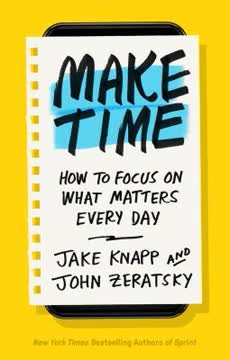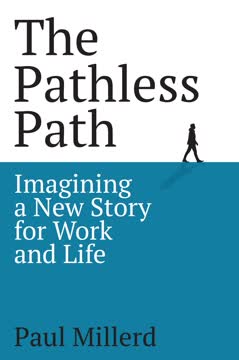Key Takeaways
1. Embrace the power of a growth mindset in your academic journey
I don't understand this yet. I haven't got the grade I want yet.
Mindset matters. A growth mindset is the belief that your abilities can be developed through dedication and hard work. This perspective transforms challenges into opportunities for learning and improvement. By adopting a growth mindset, you shift from seeing failure as a reflection of your incompetence to viewing it as a springboard for future learning.
Key aspects of a growth mindset:
- Embrace challenges as opportunities to grow
- Persist in the face of setbacks
- See effort as a path to mastery
- Learn from criticism and feedback
- Find inspiration in others' success
By cultivating a growth mindset, you'll be better equipped to handle academic pressures, overcome obstacles, and continuously improve your skills and knowledge.
2. Master evidence-based study techniques for efficient learning
Flashcards should be three things: short, meaningful and connected.
SAAD is the key. SAAD (Spaced repetition, Active recall, Association, and Desirable difficulty) is a framework for effective learning based on cognitive science. These techniques optimize your study time by leveraging how your brain processes and retains information.
- Spaced repetition: Review information at increasing intervals to combat forgetting
- Active recall: Test yourself regularly to strengthen memory connections
- Association: Link new information to existing knowledge for better retention
- Desirable difficulty: Embrace challenging learning tasks to enhance long-term memory
Implement these techniques through methods like flashcards, blurting (writing down everything you know about a topic), and the Pomodoro Technique (focused study sessions with breaks). By using evidence-based study methods, you'll learn more efficiently and retain information for longer periods.
3. Develop effective time management and productivity habits
Procrastination always gets the best of us. It's gotten me, and chances are, it's had you at some point in your journey.
Plan strategically. Effective time management is crucial for academic success. Create monthly overviews and weekly plans to prioritize tasks and allocate your time efficiently. Use tools like Google Calendar or productivity apps to organize your schedule and deadlines.
Tips for better time management:
- Break large tasks into smaller, manageable chunks
- Use the Pomodoro Technique for focused work sessions
- Identify your most productive hours and schedule important tasks accordingly
- Learn to say no to non-essential commitments
- regularly review and adjust your plans
By developing strong time management habits, you'll reduce stress, increase productivity, and create a better balance between academic work and personal life.
4. Transform homework from a chore to a strategic learning opportunity
Every day that you have an exam, go through the MORNING list to yourself again.
Routine breeds success. Approach homework strategically by developing a consistent routine and treating it as an opportunity for active learning. Create a dedicated study space and time to minimize distractions and maximize focus.
MORNING checklist for exam days:
- Materials: Ensure you have all necessary supplies
- Organize early: Wake up with ample time to prepare
- Revise: Review key concepts, but avoid cramming
- No stress conversations: Stay positive and focused
- Inhale, exhale: Practice calming breathing techniques
- Nice reward later: Visualize post-exam relaxation
- Go for it: Approach the exam with confidence
By treating homework and exam preparation as strategic learning opportunities, you'll reinforce your understanding of the material and build confidence in your abilities.
5. Cultivate positive habits to support your mental health and academic success
Mental health, like the weather, is always there. Sometimes good, sometimes bad. Sometimes easy, sometimes hard.
Self-care is crucial. Recognize that your mental health significantly impacts your academic performance and overall well-being. Develop habits that support both your mental health and academic success, such as regular exercise, mindfulness practices, and maintaining social connections.
Strategies for maintaining mental health:
- Practice daily meditation or mindfulness exercises
- Engage in regular physical activity
- Maintain a consistent sleep schedule
- Stay connected with friends and family
- Seek help when needed, whether from teachers, counselors, or mental health professionals
By prioritizing your mental health, you'll be better equipped to handle academic stress and perform at your best.
6. Navigate perfectionism and fear of failure to unlock your potential
Perfection is rooted in wanting to get 100 per cent all the time, which is okay. In fact, this is awesome to aim for. But the 80/20 principle is a reminder that getting to 80 per cent is amazing, and it's about optimising.
Embrace imperfection. While striving for excellence is admirable, perfectionism can be paralyzing. Learn to recognize when perfectionism is holding you back and use strategies like the 80/20 principle to focus on what truly matters.
Tips for overcoming perfectionism:
- Set realistic goals and expectations
- Celebrate progress, not just perfection
- Practice self-compassion when facing setbacks
- Focus on learning and growth rather than flawless performance
- Use the 80/20 principle to prioritize your efforts
By learning to navigate perfectionism and fear of failure, you'll free yourself to take risks, learn from mistakes, and ultimately achieve greater success.
7. Optimize your exam preparation and performance strategies
The night before an exam is less about the revision you do and more about how you set yourself up.
Preparation is key. Develop a comprehensive strategy for exam preparation and performance that addresses both your mental and physical state. This includes effective last-minute revision techniques, stress management strategies, and exam-day tactics.
Exam preparation checklist:
- Create a "cheat sheet" of key concepts for last-minute review
- Practice positive visualization to build confidence
- Get adequate sleep and eat a nutritious breakfast
- Use breathing techniques to manage stress during the exam
- Develop a time management strategy for the exam itself
By optimizing your exam preparation and performance strategies, you'll be able to showcase your knowledge and skills effectively under pressure.
8. Recognize the value of your education beyond grades and exams
School is just a stepping stone. Grades or not, it is a place for you to learn and grow.
Education is transformative. Understand that the true value of your education extends far beyond grades and exam results. Your academic journey is developing critical thinking skills, expanding your worldview, and preparing you for lifelong learning and adaptation.
Benefits of education beyond grades:
- Development of critical thinking and problem-solving skills
- Expansion of your knowledge and understanding of the world
- Improvement of communication and interpersonal skills
- Preparation for future career opportunities and challenges
- Personal growth and self-discovery
By recognizing the broader value of your education, you'll be motivated to engage more deeply with your studies and appreciate the long-term benefits of your academic journey.
Last updated:
FAQ
What's "The Only Study Guide You'll Ever Need" about?
- Comprehensive Study Guide: The book is a comprehensive guide designed to help students excel in their studies and exams through practical tips, techniques, and personal anecdotes.
- Focus on Mindset: It emphasizes the importance of mindset, motivation, and mental health in achieving academic success.
- Personal Experience: Written by Jade Bowler, a successful student and StudyTuber, it draws on her personal experiences and insights from her academic journey.
- Holistic Approach: The guide covers a wide range of topics, from study methods and productivity hacks to dealing with perfectionism and planning for the future.
Why should I read "The Only Study Guide You'll Ever Need"?
- Practical Advice: The book offers actionable advice and techniques that can be immediately applied to improve study habits and exam performance.
- Mental Health Focus: It addresses the often-overlooked aspect of mental health in academic success, providing strategies to manage stress and anxiety.
- Relatable and Engaging: Jade Bowler's personal anecdotes make the book relatable and engaging, offering a realistic perspective on the challenges students face.
- Comprehensive Coverage: It covers a wide range of topics, ensuring that readers have a well-rounded understanding of how to succeed academically.
What are the key takeaways of "The Only Study Guide You'll Ever Need"?
- SAAD Framework: The book introduces the SAAD framework (Spaced Repetition, Active Recall, Associations, Desirable Difficulty) for effective learning.
- Importance of Mindset: It emphasizes the significance of having a growth mindset and viewing failure as a learning opportunity.
- Productivity Techniques: The book provides various productivity hacks, such as the Pomodoro Technique and effective timetabling, to optimize study sessions.
- Mental Health Strategies: It offers strategies for maintaining mental health, including meditation, mindfulness, and seeking support when needed.
How does Jade Bowler suggest improving study habits?
- SAAD Framework: Use the SAAD framework to enhance memory retention and understanding through spaced repetition, active recall, associations, and desirable difficulty.
- Timetabling: Create a flexible yet structured timetable to manage study sessions effectively, ensuring a balance between work and relaxation.
- Active Engagement: Engage actively with study materials by summarizing, blurting, and using flashcards to reinforce learning.
- Mindfulness Practices: Incorporate mindfulness practices like meditation and journaling to improve focus and reduce stress.
What is the SAAD framework in "The Only Study Guide You'll Ever Need"?
- Spaced Repetition: Review information at increasing intervals to combat the forgetting curve and enhance long-term retention.
- Active Recall: Actively retrieve information from memory rather than passively reviewing notes, which strengthens memory connections.
- Associations: Connect new information to existing knowledge to create rich retrieval cues and improve recall.
- Desirable Difficulty: Challenge yourself with difficult tasks to deepen understanding and reinforce learning.
How does "The Only Study Guide You'll Ever Need" address mental health?
- Acknowledgment of Challenges: The book acknowledges the mental health challenges students face and emphasizes the importance of addressing them.
- Mindfulness Techniques: It suggests mindfulness techniques like meditation and breathing exercises to manage stress and anxiety.
- Seeking Support: Encourages students to seek support from friends, family, or professionals when needed, breaking the stigma around mental health.
- Routine and Habits: Promotes the development of positive habits and routines to maintain mental well-being and academic performance.
What productivity hacks does Jade Bowler recommend?
- Pomodoro Technique: Use the Pomodoro Technique to break work into focused intervals with short breaks to maintain concentration and productivity.
- Monthly and Weekly Planning: Create monthly overviews and weekly plans to set clear goals and prioritize tasks effectively.
- To-Do Lists: Develop detailed to-do lists with prioritized tasks to manage workload and reduce stress.
- Sanctity of Space: Designate specific spaces for study to minimize distractions and enhance focus.
How does Jade Bowler suggest dealing with perfectionism and fear of failure?
- Growth Mindset: Adopt a growth mindset by viewing mistakes as opportunities for learning and improvement.
- 80/20 Rule: Apply the 80/20 rule to focus on the most impactful study activities that yield the greatest results.
- Consistency Over Perfection: Emphasize consistent effort over perfect outcomes, recognizing that progress is more important than perfection.
- Self-Compassion: Practice self-compassion by acknowledging efforts and celebrating small victories, reducing the pressure of perfectionism.
What are the best quotes from "The Only Study Guide You'll Ever Need" and what do they mean?
- "Learning is productive failure." This quote emphasizes that failure is an integral part of the learning process and should be embraced as a tool for growth.
- "Perfect is the enemy of good." It highlights the idea that striving for perfection can hinder progress and that achieving good results is often sufficient.
- "Rest is productive." This quote underscores the importance of rest and self-care in maintaining productivity and overall well-being.
- "Rejection is redirection." It suggests that setbacks and failures can lead to new opportunities and paths that may be more suitable.
How does "The Only Study Guide You'll Ever Need" help with exam preparation?
- Strategic Revision: The book provides strategies for last-minute revision, focusing on active recall and application of knowledge.
- Mindset Preparation: It emphasizes the importance of a positive mindset and self-affirmation to boost confidence before exams.
- Practical Tips: Offers practical tips for the night before and the morning of exams, including checklists and breathing techniques.
- Post-Exam Reflection: Encourages reflection and self-compassion after exams, regardless of the outcome, to maintain motivation and resilience.
What is the role of mindset in "The Only Study Guide You'll Ever Need"?
- Growth Mindset: The book advocates for a growth mindset, where abilities are seen as developable through effort and learning.
- Positive Visualisation: Encourages positive visualization techniques to align thoughts and feelings with desired outcomes.
- Self-Affirmation: Highlights the power of self-affirmation in boosting confidence and performance in academic settings.
- Mindset Shifts: Suggests mindset shifts to view challenges as opportunities and to detach self-worth from academic achievements.
How does "The Only Study Guide You'll Ever Need" guide students in planning for the future?
- Odyssey Plans: Introduces the concept of Odyssey Plans to envision multiple future paths and explore different possibilities.
- Defining Values: Encourages students to define their personal values and align career choices with what truly fulfills them.
- Embracing Uncertainty: Reassures students that it's okay not to have a fixed career path and to remain open to new opportunities.
- Dream Big: Motivates students to aim high and pursue their dreams, even if they seem out of reach, as failure is a stepping stone to success.
Review Summary
The Only Study Guide You'll Ever Need received mixed reviews, with an overall positive reception. Many readers found it helpful, praising its practical tips, motivational content, and relatable tone. Some appreciated the focus on mental health and the author's personal experiences. However, critics noted issues with grammar, writing style, and perceived pretentiousness. Several reviewers mentioned its usefulness for GCSE and A-Level students, while others felt it lacked broader applicability. Despite some criticisms, many readers recommended the book as a valuable resource for students seeking to improve their study habits.
Similar Books






Download PDF
Download EPUB
.epub digital book format is ideal for reading ebooks on phones, tablets, and e-readers.




